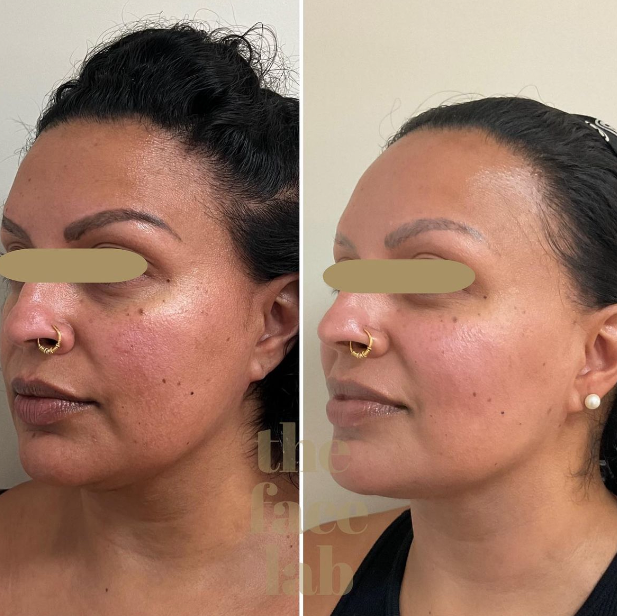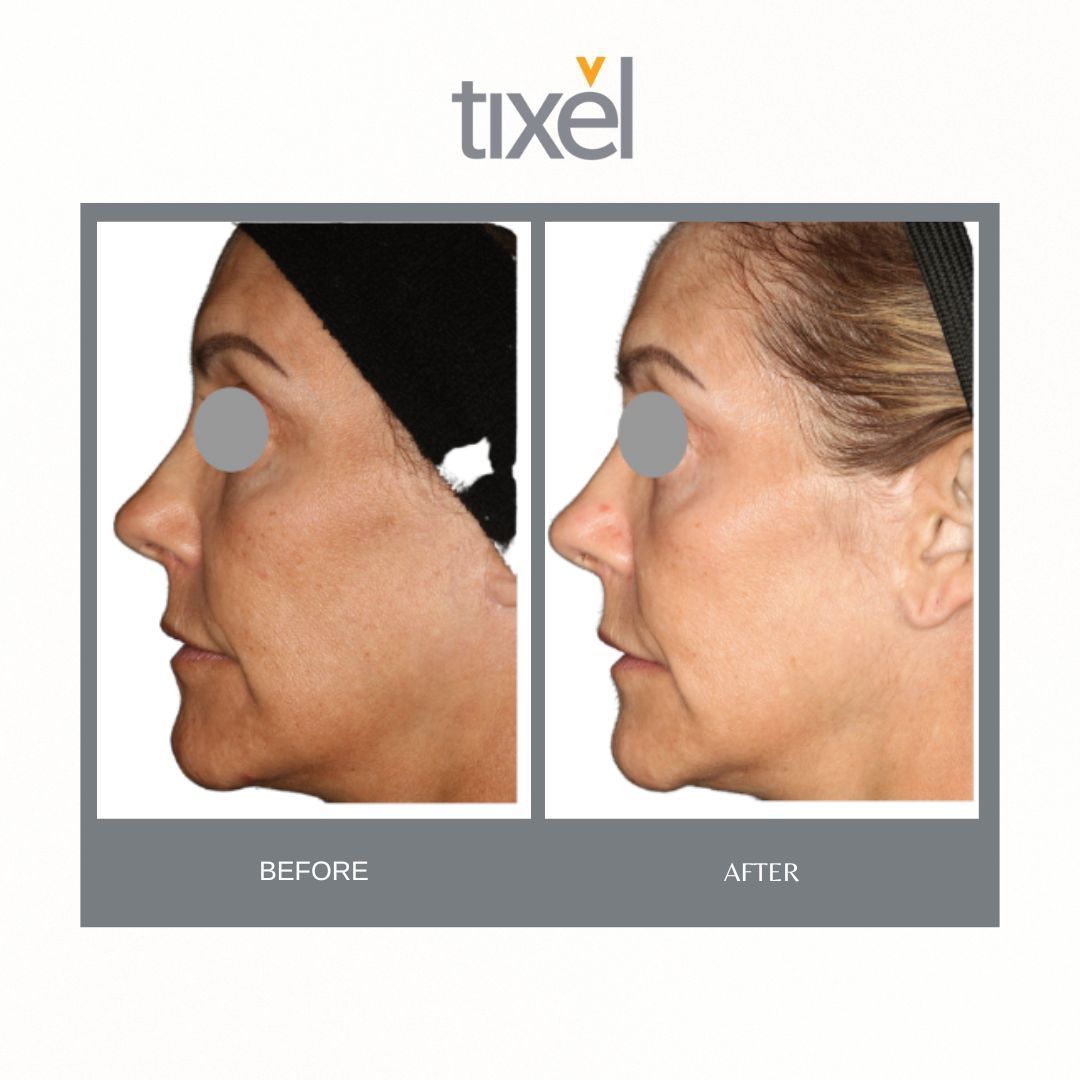Navigating Sensitive Skin and Rosacea
April is Awareness Month in Toronto, Canada
In Toronto, Ontario, Canada,
rosacea affects approximately 1 in 10 adults, making it a prevalent skin condition in the region. Studies show that women are more likely to develop rosacea than men, with a ratio of about 3 to 1. Among the common triggers reported by individuals with rosacea in Toronto are
extreme temperatures, sun exposure, stress, and certain foods and beverages like spicy dishes and alcohol.
Symptoms of Rosacea
Rosacea can manifest in similar ways across different skin tones,, but there may be some variations in how the symptoms appear. Here's a breakdown of common symptoms seen in both light and deeper pigmented skin patients:
Common Symptoms in Light & Deep Pigmented Skin:
- Facial Redness: One of the hallmark symptoms of rosacea is persistent redness on the central part of the face, including the cheeks, nose, forehead, and chin.
- Visible Blood Vessels: Small blood vessels (telangiectasia) may become visible on the face, creating a spider-like appearance, particularly on the cheeks and nose.
- Pimple-like Bumps: Rosacea can cause small, red bumps (papules) and pus-filled bumps (pustules) that resemble acne, often concentrated in the central face area.
- Burning or Stinging Sensation: Many individuals with rosacea experience a burning or stinging sensation on their face, which can be triggered by various factors such as skincare products or environmental conditions.
- Sensitive Skin: Rosacea often leads to increased skin sensitivity, making the skin more prone to irritation from cosmetics, sunlight, and certain skincare ingredients.
- Eye Irritation: Some people with rosacea may also experience eye symptoms such as dryness, irritation, redness, and a gritty feeling, known as ocular rosacea.
Variations in Symptoms Based on Skin Tone:
While the core symptoms of rosacea remain consistent, there are potential variations in how these symptoms appear in patients:
- Redness Intensity: Redness may appear more pronounced in fair or white skin, whereas it can manifest as a deeper red or purplish hue in individuals with brown skin tones.
- Pigmentation Changes: In brown skin patients, rosacea-related redness and inflammation can sometimes lead to post-inflammatory hyperpigmentation, causing areas of darkening or discoloration.
- Texture Changes: Skin texture changes, such as thickening of the skin (rhinophyma), can occur in severe cases of rosacea and may present differently based on skin tone.
- Differential Diagnosis Challenges: Diagnosing rosacea in brown skin patients can sometimes be more challenging due to variations in how symptoms present, leading to potential misdiagnosis or delayed diagnosis.
Understanding Triggers
Sensitive skin and rosacea often react to specific triggers, from environmental factors like harsh weather or pollution to lifestyle choices such as stress and diet. Identifying your specific triggers is crucial in managing flare-ups and maintaining skin health. Through shared expertise with your skin provider, you can explore common triggers and become more empowered to make informed choices for your skin.
Prevention Strategies
Prevention is key in managing sensitive skin and rosacea. Embracing a gentle skincare routine tailored to your skin type is essential. This includes using fragrance-free, hypoallergenic products, avoiding harsh exfoliants, and protecting your skin from sun exposure with broad-spectrum sunscreen. Additionally, adopting stress-reducing practices like meditation or yoga can benefit both your skin and overall well-being. Some people can benefit from a tailored skincare routines, including gentle cleansers, moisturizers, and sunscreen, that focus on decreasing sensitivity and redness to help manage rosacea symptoms effectively.
Effective Treatments and Skincare
When it comes to treating rosacea and sensitive skin, a personalized approach is paramount. Consulting with a dermatologist or skincare professional can help determine the best course of action, which may include prescription medications, topical treatments such as micro-botox or calming facials, or Nd:YAG laser therapies. Emphasizing gentle ingredients like aloe vera, niacinamide, fragrance-free products, and ceramides in skincare products can also soothe and nourish sensitive skin.
Rosacea
Living with sensitive skin and rosacea can be challenging, both physically and emotionally. As we celebrate Rosacea Awareness Month in Toronto, Canada, let’s unite in raising awareness of this common but often overlooked skin condition. Healthcare providers and patients need to be aware of these nuances and consider them when diagnosing and treating rosacea in patients of different skin tones. Customized treatment plans, tailored skincare recommendations, and regular follow-ups can help manage rosacea effectively and minimize its impact on skin health and quality of life. If you think you might be experiencing symptoms of rosacea contact your primary care provider diagnostic clarification.










